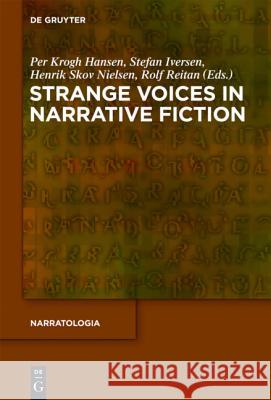Strange Voices in Narrative Fiction » książka
Strange Voices in Narrative Fiction
ISBN-13: 9783110268577 / Angielski / Twarda / 2011 / 274 str.
From its beginnings narratology has incorporated a communicative model of literary narratives, considering these as simulations of natural, oral acts of communication. This approach, however, has had some problems with accounting for the strangeness and anomalies of modern and postmodern narratives. As many skeptics have shown, not even classical realism conforms to the standard set by oral or 'natural' storytelling. Thus, an urge to confront narratology with the difficult task of reconsidering a most basic premise in its theoretical and analytical endeavors has, for some time, been undeniable. During the 2000s, Nordic narratologists have been among the most active and insistent critics of the communicative model. They share a marked skepticism towards the idea of using 'natural' narratives as a model for understanding and interpreting all kinds of narratives, and for all of them, the distinction of fiction is of vital importance. This anthology presents a collection of new articles that deal with strange narratives, narratives of the strange, or, more generally, with the strangeness of fiction, and even with some strange aspects of narratology.
How does narratology relate to narrative strangeness? This question is urgent for narratologists who share a marked skepticism towards the idea of using natural narratives as some kind of genetic model for understanding and interpreting all kinds of narratives, and for whom the distinction of fiction is important. This anthology presents a collection of articles that deal with different aspects of narrative voice in fiction ? with strange narratives, narratives of the strange, or, more generally, with the strangeness of fiction, and even with some strange aspects of narratology.











